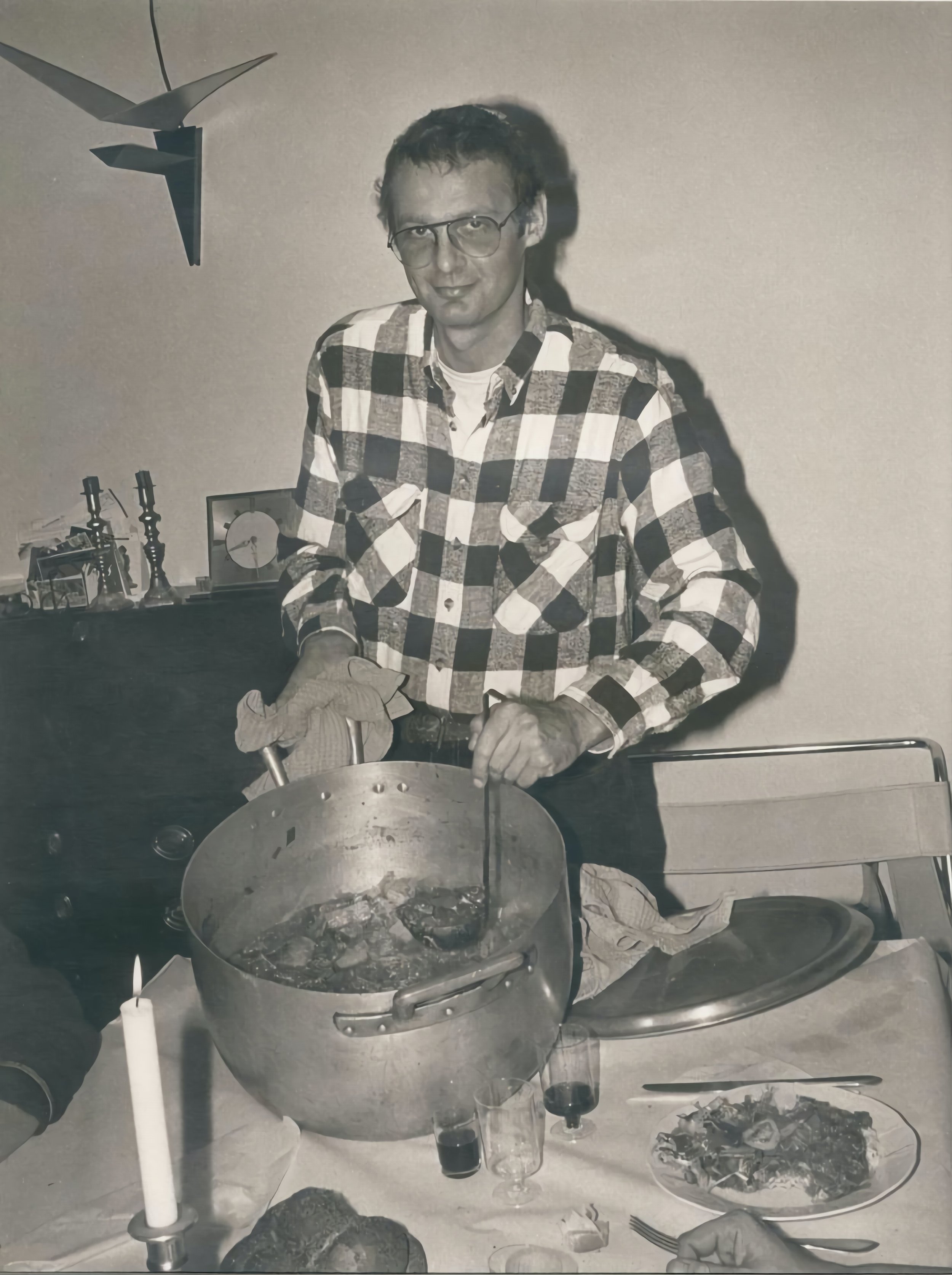A Call to Prayer: Why Should We Care About the Feasts of the Lord?
I recently watched a Christian Broadcasting Network interview with an Israeli Rabbi. The Rabbi shared how, during the Holocaust, the Jews had God alone with them in the storm. By contrast, he shared how, during the present war in Israel, they realize they have God with them and also Christians from around the world. The Christians are no longer silent like they were during the Holocaust. They are ardently standing with Israel in prayer, giving, and many other initiatives. I found this very encouraging to hear.
Most who read this are very likely of the Judeo-Christian persuasion. Christianity was derived from Judaism. We read the same Old Testament Bible. Jesus is and was a Jew. We are inextricably linked. We don’t want to erase that, nor forget it. Jews do not have to leave being Jewish to be connected with Christians. Christians do not stop being Christians by embracing our Jewish brothers and sisters - nor did we replace them in the heart of God. By contrast, we want to learn from our ‘older brother,’ the Jewish people, and Judaism.
Learning From the Jewish People
I have sought to learn many things from the Jewish people, such as how they have kept the Sabbath faithfully through the years and have a culture of blessing. Also, how they value things like a coming-of-age ceremony they call the Bar Mitzvah (Son of the Commandment) or Bat Mitzvah (Daughter of the Commandment). Indeed, my husband and I have incorporated many things in our parenting taught by the Jewish people. We celebrate the Sabbath the Jewish way and conduct a Bar Barakah (Son of the Blessing) and Bat Barakah (Daughter of the Blessing) for each of our six children when they reach thirteen, which has been a great blessing to them.
In this post, we will look at something that the Jewish people have been honoring for millennia, which is the Leviticus 23 Feasts of the Lord. I believe, as Christians, we need to learn from and see how there is a connection to Jesus (Yeshua) through these feasts.
In the year 586 BC, Jerusalem and the southern Kingdom of Judah fell to the Babylonians. Most of the Hebrew people were taken into captivity in Babylon under Nebuchadnezzar. Persia defeated the Babylonians, and under King Cyrus, a change occurred. Jeremiah’s prophecy of 70 years of captivity was accurate, as three waves of those in captivity were released to return to the land under Zerubbabel, Ezra, and Nehemiah. The Second Temple was built at this time, and the walls around Jerusalem were restored.
The feasts are God’s schedule or appointments with His people that are signs of something significant. They have past, present, and future fulfillments.
The Spring Feasts consist of Passover, Feast of Unleavened Bread, Feast of First fruits, and Feast of Weeks (Shavuot or Pentecost). The Fall Feasts are the Feast of Trumpets, Day of Atonement, and Feast of Tabernacles. Three of the feasts, Passover, the Feast of Weeks, and the Feast of Tabernacles (Sukkot), required all able-bodied males to make the trek to the temple to gather collectively. It is admirable that the Jewish people have been honoring these appointments with God since the time of Moses - around 1200 B.C.
In the Christian faith, there is an incredible crossover into the life of Jesus that pertains to the feasts. Colossians 2:16-17 says, “So let no one judge you in food or in drink, or regarding a festival or a new moon or sabbaths, which are a shadow of things to come, but the substance is of Christ.” Is it possible the feasts all somehow speak of Yeshua?
The Feasts of the Lord
Passover was to be celebrated on the 14th day of Nisan and commemorates the exodus to freedom of the Israelites out of Egyptian slavery. Just as a lamb was sacrificed on the last night of slavery and the blood applied on the doorposts of the Hebrew people, protecting them from the angel of death that touched all firstborns in Egypt, the Passover lamb was sacrificed throughout the years on the afternoon of Passover, at 3:00 pm. Interestingly, Jesus was crucified on Passover, and He died at 3:00 pm (Luke 23:44).
The Feast of Unleavened Bread was to be commemorated the next day, and for seven days, the Israelites were not to eat unleavened bread even as the bread was not able to rise when they fled Egypt quickly after the first Passover night. Unleavened bread, such as matzah, is preserved from decay much better than bread made with leaven. Leaven is indicative of sin, and Jewish homes will be swept clean of any leaven through this season. Christians know Jesus lived without sin and see this as representative of His body that did not see decay in the tomb.
The Feast of First Fruits was to be honored on the first day of the week after Passover - the third day. The Hebrew people were to honor the Lord by giving the first harvest fruits to the Lord, waving a sheaf before the Lord. In Christianity, we know Jesus arose from the tomb on the third day and was the ‘firstborn from the dead’ (Revelation 1:5). Thus, like Him, we will rise from death to live eternally.
The Feast of Weeks, Shavuot, or Pentecost (Greek for fiftieth day), was to be celebrated 50 days after the Feast of First Fruits. It was a celebration of the wheat harvest. Christianity recognizes that after Jesus rose from the dead, He appeared first to the women, then His disciples, and to 500 people during 40 days. He then ascended to the Father and told the people to tarry, pray, and wait in Jerusalem for the gift the Father had promised, which they did for ten days. Adding together 40 days plus ten means 50 days later, exactly when the events of Acts 2 occurred. “When the Day of Pentecost had fully come…”(Acts 2:1), the Holy Spirit was poured out.
It is fair to say that for every significant event in Jesus's life during His first coming, there was a coinciding Leviticus 23 appointment by God. What about the Fall Feasts? Is there something about what Christians believe in the Second Coming of Jesus?
The Feast of Trumpets (Rosh Hashanah) falls on the first day of the 7th month, at the first sighting of the new moon. It was to be a memorial of the blowing of trumpets. Scriptures such as Matthew 24:30-31, I Corinthians 15:51-52, or I Thessalonians 4:16-17 speak of Jesus’ return occurring at the last trumpet sound.
The Day of Atonement of Leviticus 23 was on the tenth day of Tishri and a holy day to make atonement for sin before the Lord. This is the day the High Priest would enter the Holy of Holies to make atonement for the sins of the people. In Christianity, we know there will be a day of Judgement. Isaiah 1:18 says, “Come now and let us reason together, says the Lord, though your sins are like scarlet, they shall be as white as snow; though they are red like crimson, they shall be as wool.”
On the fifteenth day of Tishri, the Feast of Tabernacles or Sukkoth was to be honored. In it, the Israelites were to dwell in booths (also called the Feast of Booths) for seven days and celebrate the fact that the Lord brought them out of the land of Egypt, and they dwelt in temporary dwellings after the exodus until they reached the Promised Land. In Christianity, we look at this through the lens of dwelling with the Lord forever someday. “Behold the Tabernacle of God is with men, and He will dwell with them, and they shall be His people. God Himself will be with them and be their God.” (Revelation 21:3).
So, why should we care about the Feasts of the Lord? Because God calls them “His Feasts,” and Christians serve and love the same God as the Jewish people: the God of Abraham, Isaac, and Jacob; the God of creation; the God of Exodus. The One who was and is and is to come. Not only can we learn much from our Jewish brothers and sisters, but we also owe a great deal of gratitude to the Jewish people for the Scriptures, for honoring the Feasts for thousands of years, and so much more. May we stand with them in love, honor, gratitude, prayer, and friendship in good and in challenging times. Indeed, the Lord has promised blessings on those who bless Israel not only during the Abrahamic covenant of Genesis 12 but also in the words of David in Psalm 122:6, “Pray for the peace of Jerusalem; may they prosper who love you.”
P.S. Are you new to JH Israel’s Call to Prayer? Are you interested in learning more about our global prayer network? Click here to fill out a form to learn more about our prayer initiatives.



